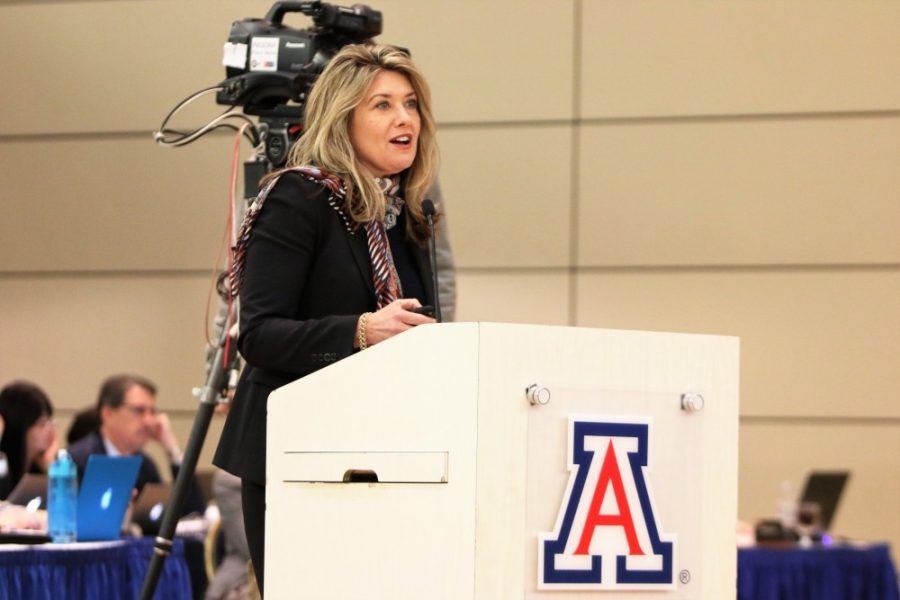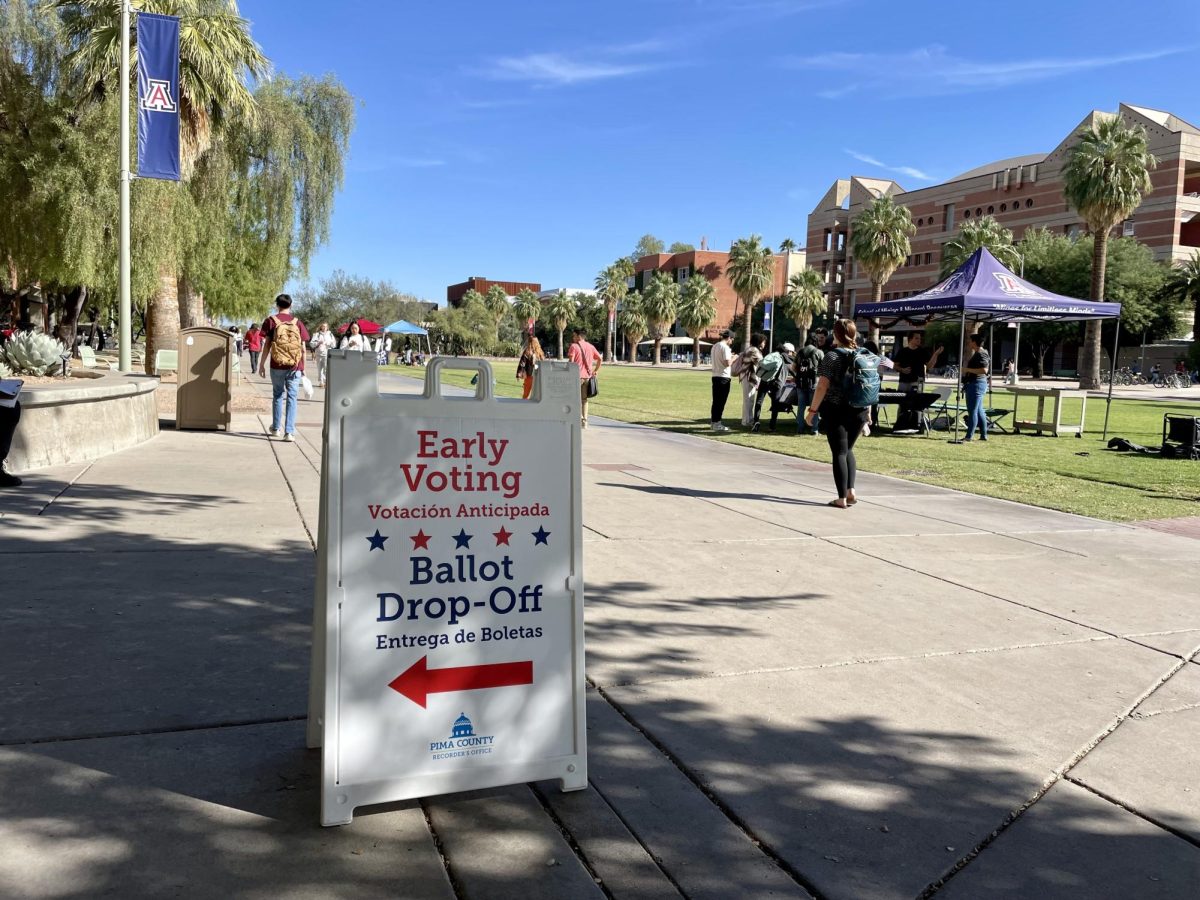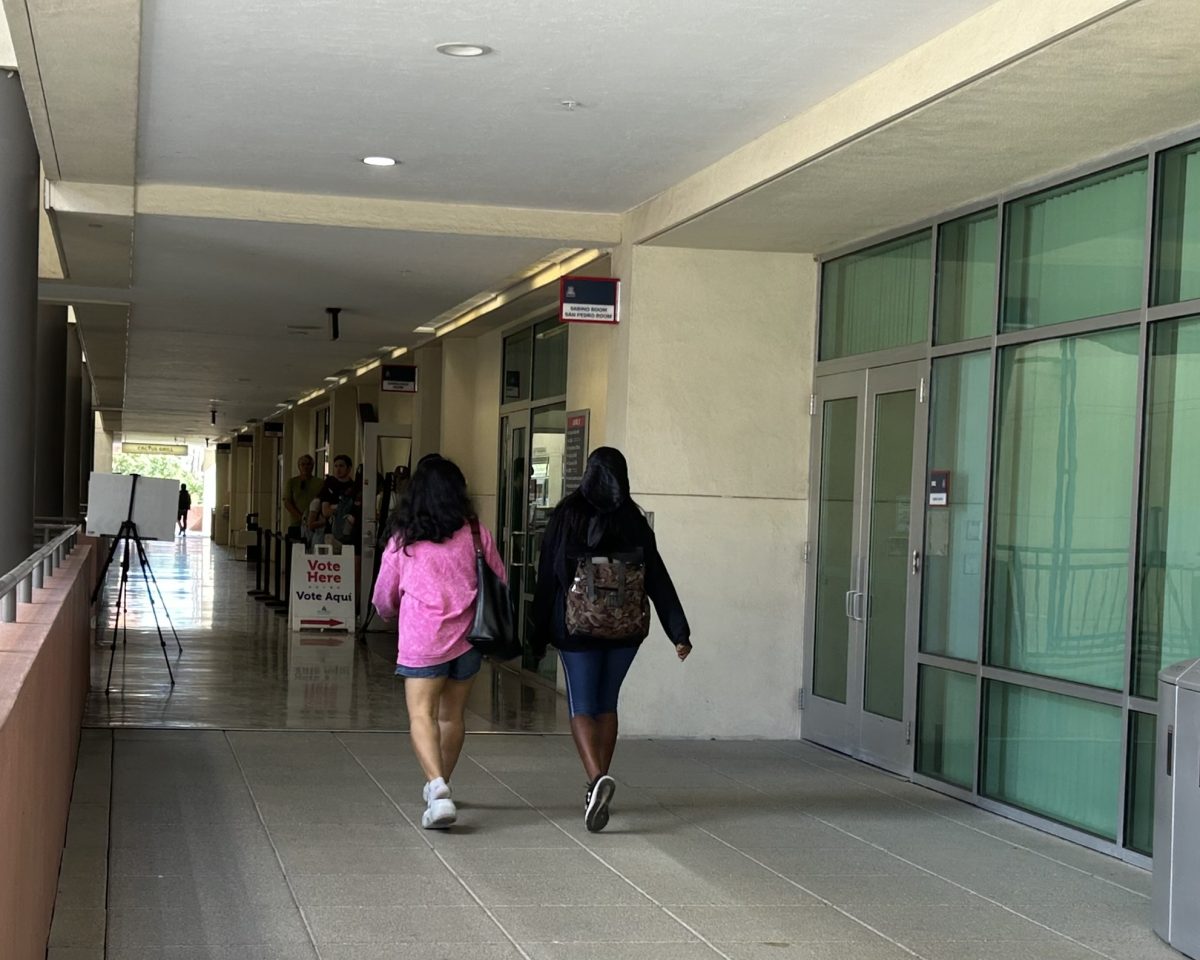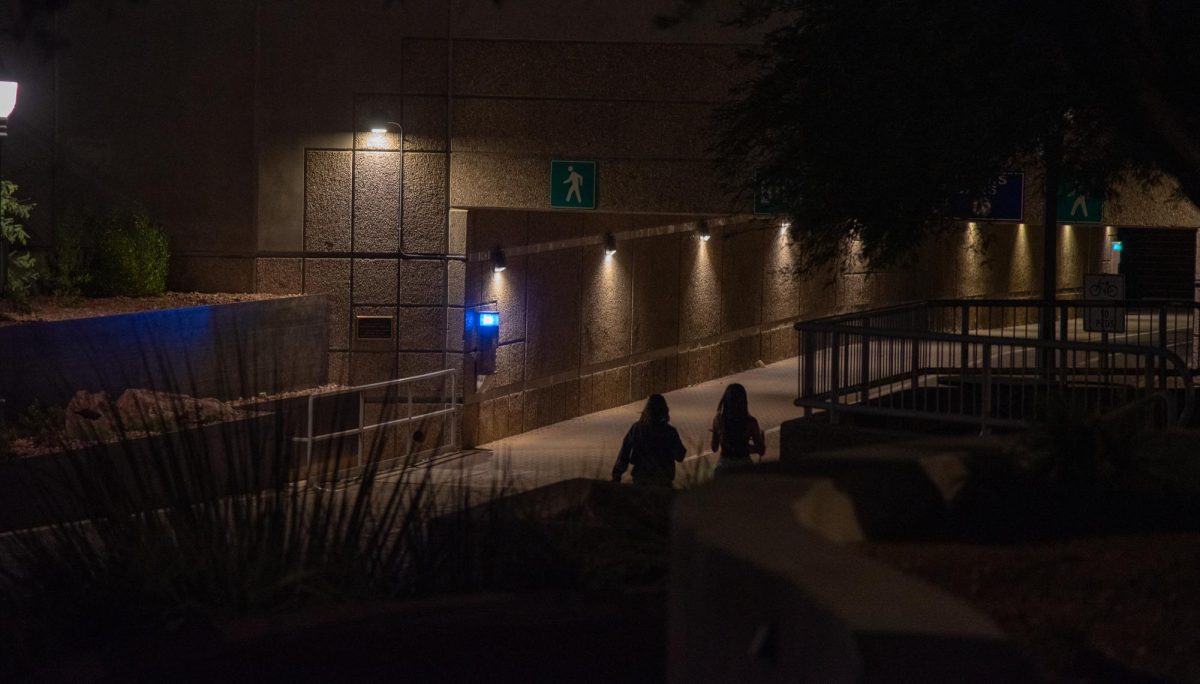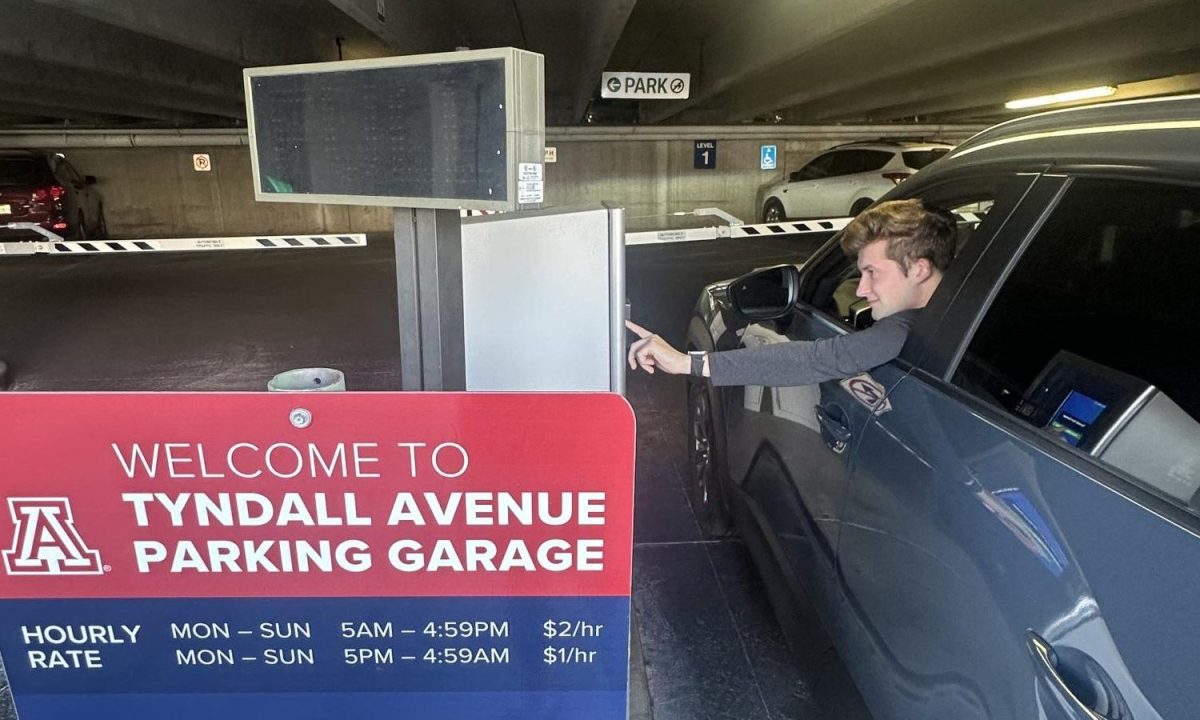The Arizona State Senate Education Committee, chaired by Sen. Sylvia Allen, discussed and held off on voting on SB 1061 pending a stakeholder meeting during a committee meeting Jan. 26.
During the 30-minute segment, Allen, the bill’s primary sponsor, described her vision of SB 1061.
From the audience, Arizona Board of Regents President Eileen Klein presented the regents’ opposition to the bill and Associated Students of the University of Arizona’s President Michael Finnegan spoke in support of the bill.
SB 1061 caps resident undergraduate tuition and mandatory fee increases at 2 percent annually, requires the regents to approve all university fee increases and provides residents a four-year tuition guarantee.
“I am concerned about the high cost of education,” Allen said. “I am trying to find a way to make sure students and families know what it will cost for four years of education.”
RELATED: ASUA discuss SB 1061, constitution
Allen stressed the need for predictability of the cost to attend an Arizona public university during her introduction.
Allen acknowledged during the recession the legislature cut funding to the universities but was disappointed the universities transferred this burden onto the students in the form of unpredictable and large tuition increases.
“I do not want to see universities who believe they have to grow or die and seek to raise tuition the maximum amount every year,” Klein said speaking on behalf of the regents who voted to oppose the bill on Jan. 20.
For the first time, the state universities are required to produce business plans and be able to show where tuition dollars are being spent, Klein said.
The regents have worked to slow tuition increases and to increase student involvement as well as transparency in the tuition setting process.

“We will lose all solid reformers that have really tied tuition setting to what the real needs of the university are,” Klein said.
Klein said each of the universities needs flexibility to set its own rate increases and any blanket approach across the three institutions ignores the different factors unique to each university.
ASUA President Finnegan drove from Tucson to speak in support of the bill.
“I support the mission that all students know what they are paying for,” Finnegan said to the committee.
Speaking on behalf of himself, Finnegan expressed his support of the requirement the regents must approve all fee increases, not just those under $100.
RELATED: Arizona Board of Regents oppose bill limiting tuition increases
While mandatory fees and resident tuition are guaranteed for four years, differential tuition (program fees) and course fees are not, Finnegan said.
“We are fee’d up,” Finnegan said to the committee.
Students in the Eller college, on top of their $11,000 tuition and $1,000 mandatory fees, pay a program fee of $900 per semester and course fees on mandatory classes for their graduation, Finnegan said.
At the same time the current university model taxes courses, the universities have campus pantries to give out food to students that cannot afford to eat, Finnegan said.
The universities have some good points, but the truth is students shoulder immense costs from tuition and mandatory fees but also from course fees and differential tuition,” Finnegan said in an interview.

This bill brings much-needed transparency to fee costs, both where the money is going and the regents’ approval process, Finnegan said.
Universities must look for other sources of revenue and not just students, Finnegan said.
There is currently a resolution in the ASUA senate concerning SB 1061, and Finnegan said he hopes his fellow senators will engage with the legislature to make their voices heard.
Follow Randall Eck on Twitter.



